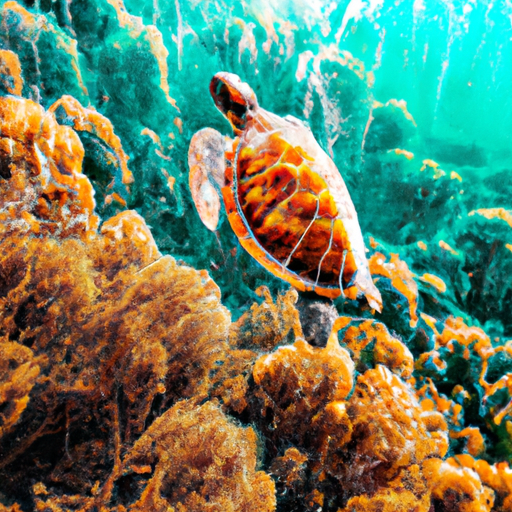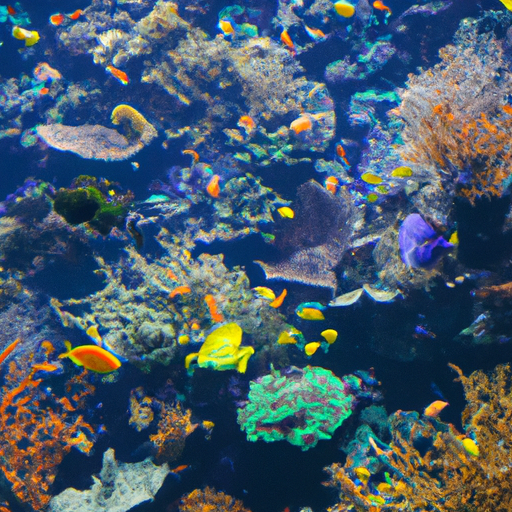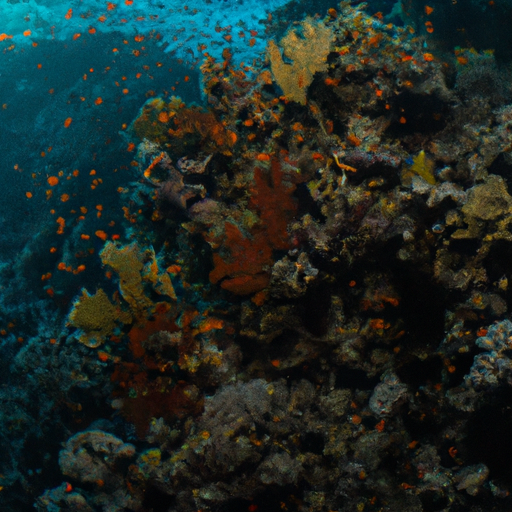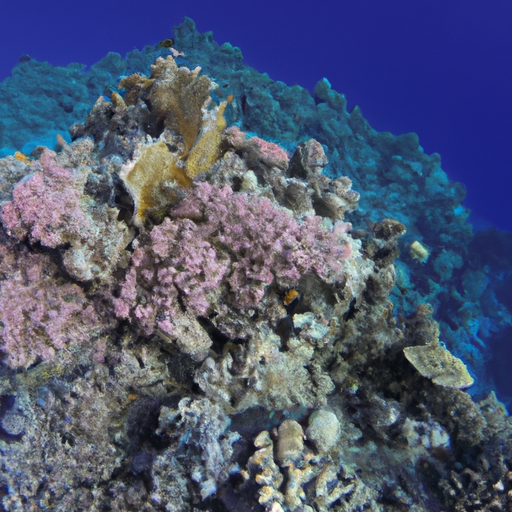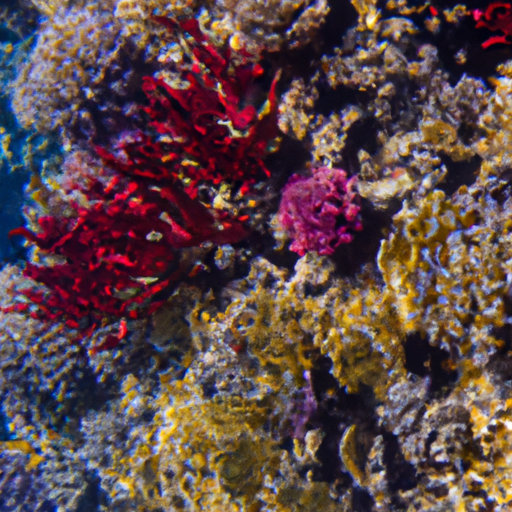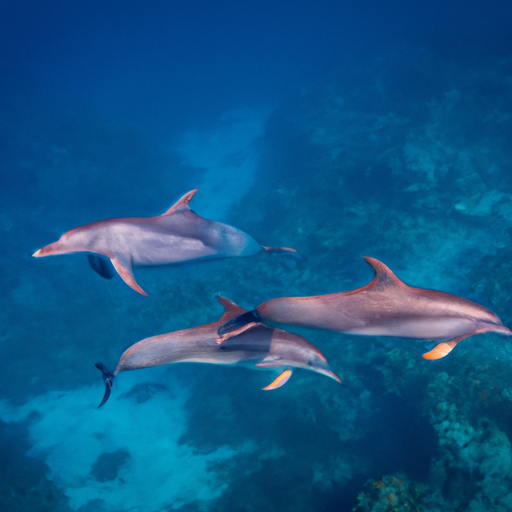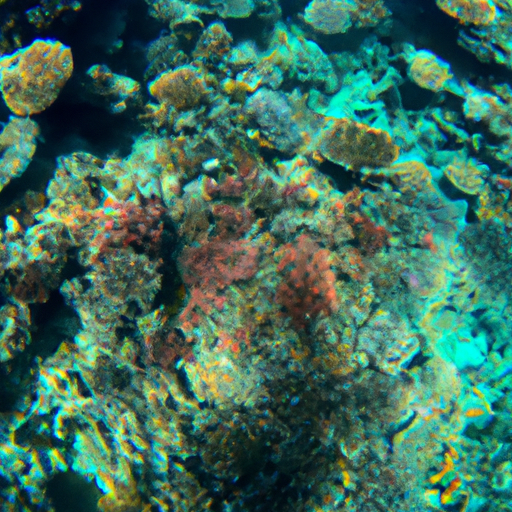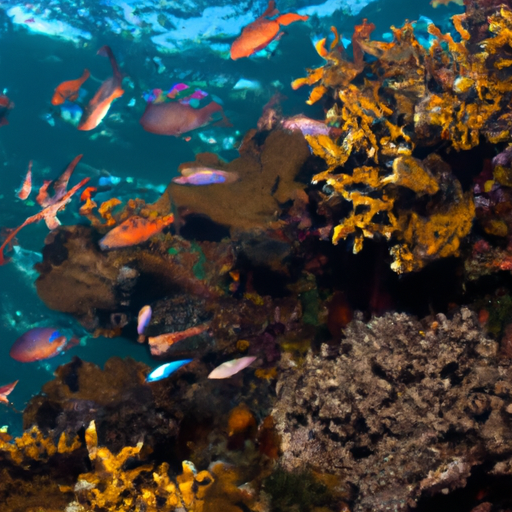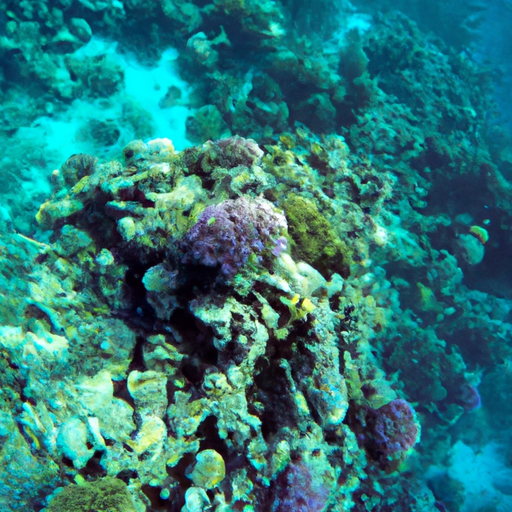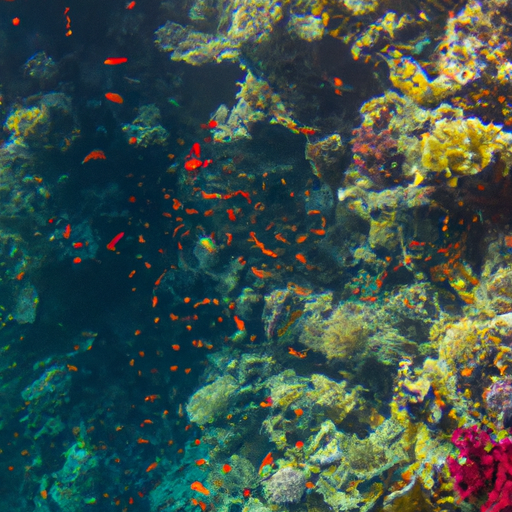Exploring the wonders of marine life is an exhilarating adventure that takes us on a captivating journey into the depths of the ocean. As we delve deeper into the underwater world, we unearth hidden treasures and encounter a diverse array of extraordinary creatures. The ocean, covering more than 70% of the Earth’s surface, holds an astonishing amount of beauty and mystery. It houses an abundant variety of marine life, from the tiny and colorful coral polyps to the majestic whales. Each species has its own unique characteristics and plays a crucial role in the delicate balance of the marine ecosystem. Coral reefs, in particular, are visually stunning ecosystems that serve as essential nurseries for many marine species. As we venture further into the depths, we encounter the enigmatic realm of the deep sea, with its bioluminescent organisms and unique creatures adapted to survive under extreme conditions. Exploring the wonders of marine life not only provides us with awe-inspiring sights but also offers valuable insights into the natural world, contributing to conservation efforts and the sustainable management of our oceans.
Marine Mammals
The Marine Mammals category encompasses a diverse group of animals that have adapted to life in the sea. This category includes a wide range of species such as whales, dolphins, seals, sea lions, and walruses. Marine mammals are characterized by their ability to breathe air, give birth to live young, and nurse their offspring with milk. They have evolved various adaptations to thrive in aquatic environments, such as streamlined bodies, flippers or flukes for swimming, and a thick layer of blubber for insulation. Marine mammals play important roles in ocean ecosystems as top predators and key indicators of ecosystem health. They are also significant attractions for wildlife observation and tourism, highlighting the need for conservation efforts to protect these fascinating and vulnerable creatures.
Exploring the Biodiversity of Marine Life: From Coral Reefs to Deep Sea Creatures
Exploring the biodiversity of marine life is a thrilling adventure into a world of color and diversity. Coral reefs, known as the “rainforests of the sea,” are incredibly biodiverse ecosystems. They are home to a kaleidoscope of marine life, including coral polyps, colorful fish, and fascinating creatures. Coral reefs play a vital role in maintaining the delicate balance of their ecosystems, providing shelter and habitat for countless species. The deep sea is another realm of biodiversity, with unique organisms adapted to extreme conditions. From chemosynthetic ecosystems near hydrothermal vents to mysterious deep-sea creatures, these environments reveal the interconnectedness and complexity of marine ecosystems. By protecting and promoting sustainable practices, we can ensure future generations can marvel at the rich diversity of marine life.
Protecting Marine Life: The Importance of Conservation Efforts
The impact of human activities on marine life is a pressing issue that highlights the need for conservation efforts. This article stresses the importance of protecting marine life for several reasons. Firstly, marine ecosystems provide essential resources for countless species, making their conservation vital for the overall health of the oceanic environment. Furthermore, marine life plays a crucial role in regulating the Earth’s climate by absorbing carbon dioxide and distributing heat. Additionally, marine life has significant economic value, supporting industries such as tourism and fishing. Conservation efforts are crucial in mitigating threats such as overfishing, pollution, and habitat destruction. In conclusion, protecting marine life is our responsibility to ensure the survival of species, safeguard ecosystem services, and maintain a sustainable future for generations to come.
The Impact of Climate Change on Marine Life: Threats and Solutions
The article discusses the impact of climate change on marine life, with a particular focus on the threats faced by delicate marine ecosystems. Rising sea temperatures and ocean acidification disrupt the balance of these ecosystems, leading to challenges for the organisms that rely on them. The increase in sea temperatures poses a significant threat to key species such as coral reefs and fish, disrupting their behavior and reproductive patterns. Ocean acidification, caused by increased carbon dioxide absorption, affects species with calcium carbonate shells, hindering their ability to build and maintain their protective shells. Despite these challenges, there are potential solutions such as reducing greenhouse gas emissions and establishing marine protected areas. Global cooperation and awareness are crucial in implementing effective policies to protect marine ecosystems from the growing threat of climate change.
Unveiling the Secrets of Marine Life: Fascinating Discoveries and Research
“The Exploration of Marine Ecosystems: Revealing the Wonders of the Sea”
The world’s oceans are a hub of diverse and fascinating marine life that is still largely unexplored. Scientists and researchers are continuously making new discoveries about the mysteries of marine ecosystems. Marine organisms have developed unique strategies to survive in challenging conditions, from the deepest trenches to the shallowest coral reefs. Technological advancements have allowed researchers to explore previously inaccessible areas of the ocean and capture stunning imagery of deep-sea creatures and their habitats. The discovery of hydrothermal vents and their unique ecosystems has challenged our understanding of life’s requirements. The role of marine biodiversity in maintaining healthy ecosystems and the impact of human activities on marine life are also areas of significant study. By studying these ecosystems, scientists hope to develop effective conservation strategies to protect their remarkable biodiversity.
Conservation Efforts to Protect Endangered Marine Species: Success Stories and Challenges
Conservation efforts to protect endangered marine species have been crucial in preventing their extinction and restoring their populations. Success stories include the recovery of the humpback whale population through international collaborations and protected areas, the implementation of fishing regulations to protect the Atlantic bluefin tuna, and the protection of marine turtle species through the establishment of nesting beaches and regulations against illegal harvesting. However, ongoing challenges such as climate change, habitat destruction, and pollution continue to threaten marine species. Long-term commitment and international cooperation are necessary to ensure the survival and recovery of these magnificent creatures. The article will provide case studies and initiatives that have yielded positive results in marine species conservation.
Exploring the Fascinating Diversity of Marine Life
microscopic organisms to the largest mammals on Earth, the marine environment is teeming with life. With estimates ranging from 500,000 to 10 million marine species, the ocean offers a vast variety of habitats that support different ranges of species. Marine life showcases diversity not just in terms of species numbers, but also in their shapes, sizes, and colors, with unique adaptations and behaviors that help them thrive in their specific ecological niche. Explorations of the deep sea have revealed astonishing examples of biodiversity, with organisms that have adapted to extreme conditions. The exploration of marine life has also unveiled unexpected interdependencies and symbiotic relationships, highlighting the interconnectedness of marine ecosystems and the need for conservation. Overall, understanding and protecting the diverse ecosystems of marine life is crucial for maintaining the health and balance of our oceans.
Exploring the Fascinating World of Marine Life: A Journey into the Ocean Depths
Diving into the depths of the ocean unveils a mesmerizing world of marine biodiversity. From vibrant coral reefs that provide a sanctuary for countless species to the open ocean teeming with shimmering fish and majestic whales, the diversity of marine life is awe-inspiring. Exploring the depths also introduces us to peculiar deep-sea creatures with extraordinary adaptations. However, the world beneath the waves is facing threats such as climate change and overfishing, emphasizing the need to protect marine biodiversity. By deepening our knowledge and appreciation of these wonders, we can work towards a future where marine life is cherished and preserved for generations to come.
The Importance of Marine Conservation: Protecting our Oceans and its Creatures
Marine conservation plays a crucial role in protecting our oceans and its creatures, preserving the diversity and fragility of marine ecosystems. It helps to safeguard the delicate balance and interconnectedness of these ecosystems, ensuring the overall health and productivity of the ocean. Marine conservation also helps protect endangered species and preserve biodiversity, giving vulnerable creatures a chance to survive and thrive. Additionally, healthy marine ecosystems provide numerous benefits to humanity, such as food resources, livelihoods, and climate regulation. Collaborative efforts between governments, NGOs, scientists, and local communities are essential for effective conservation strategies, while raising awareness about the importance of marine conservation is crucial for garnering public support. Overall, conserving our oceans is vital for the well-being of marine life and for sustaining a healthy and prosperous future for humanity.
The Importance of Preserving Marine Life: Protecting Our Oceans for Future Generations
and the ecosystems they inhabit. The article highlights the importance of preserving marine life and discusses the various threats it faces due to human activities such as pollution, overfishing, and climate change. It emphasizes the need for urgent action and proposes solutions such as responsible fishing practices, reducing plastic waste, and addressing climate change through greenhouse gas emissions reduction. The article also stresses the importance of collective efforts from governments, organizations, and individuals to protect our oceans through measures like marine protected areas and sustainable practices. Overall, the article promotes the preservation and protection of marine life for the benefit of future generations and the well-being of our planet.

